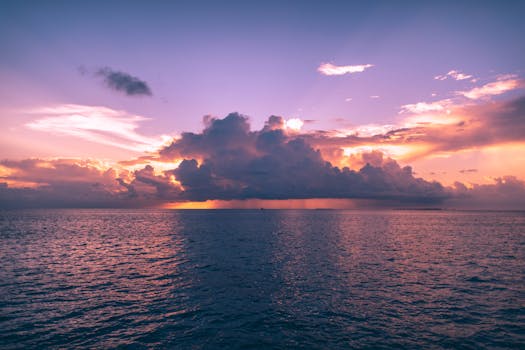The Maldives: Understanding Paradise in the Indian Ocean
The Maldives, a chain of 26 atolls and over 1,000 coral islands in the Indian Ocean, is often described as a tropical paradise. This is not an overstatement. The country's stunning white-sand beaches, crystal-clear waters, abundant marine life, and vibrant coral reefs make it a dream destination for travelers. But there's more to the Maldives than its natural beauty. The country has a rich history and culture that is as captivating as its physical allure.

The Maldives' history dates back over 2,500 years, with archaeological evidence suggesting that the islands were first inhabited by seafaring traders from the Indian subcontinent. Over the centuries, the Maldives has been influenced by various cultures due to its strategic location along major maritime trade routes. This cultural melting pot has shaped the country's unique identity and traditions.
One of the most distinctive aspects of Maldivian culture is its language, Dhivehi. With roots in Sanskrit and influences from Arabic, Sinhalese, and other languages, Dhivehi reflects the country's diverse cultural heritage. Another integral part of Maldivian culture is Islam, which was introduced to the islands in the 12th century and remains the state religion today.
The Maldivian economy has traditionally been based on fishing, agriculture, and shipbuilding. However, in recent decades, tourism has emerged as the mainstay of the economy. The country's pristine beaches, luxury resorts, and unique underwater experiences have made it a magnet for tourists from around the world.
Despite its idyllic image, the Maldives faces significant environmental challenges due to climate change. Rising sea levels pose a serious threat to this low-lying nation. The government and local communities are taking steps to mitigate these risks through sustainable practices and innovative solutions like building floating islands.
Understanding the Maldives requires appreciating not only its natural beauty but also its rich history and culture, its economic transformation, and the environmental challenges it faces. This deeper understanding can enhance the experience of visiting this tropical paradise.
The Maldives is more than just a postcard-perfect destination. It's a country with a fascinating past, a dynamic present, and a future that hinges on balancing development with environmental sustainability. Whether you're planning a trip to the Maldives or simply curious about this island nation, delving into its history, culture, and current issues can provide valuable insights.
As we explore the Maldives' breathtaking landscapes, immerse ourselves in its vibrant culture, and learn about its complex challenges, we gain a deeper appreciation for this unique corner of the world. We see that paradise is not just about stunning vistas and luxury resorts. It's also about understanding and respecting the place and its people.
So next time you think of the Maldives, remember that there's more to this island paradise than meets the eye. Its beauty is not just skin deep. Beneath its turquoise waters and palm-fringed beaches lies a rich tapestry of history and culture, a thriving economy driven by tourism, and a nation grappling with environmental challenges. This is what makes the Maldives truly special – not just as a travel destination, but as a unique nation with its own story to tell.